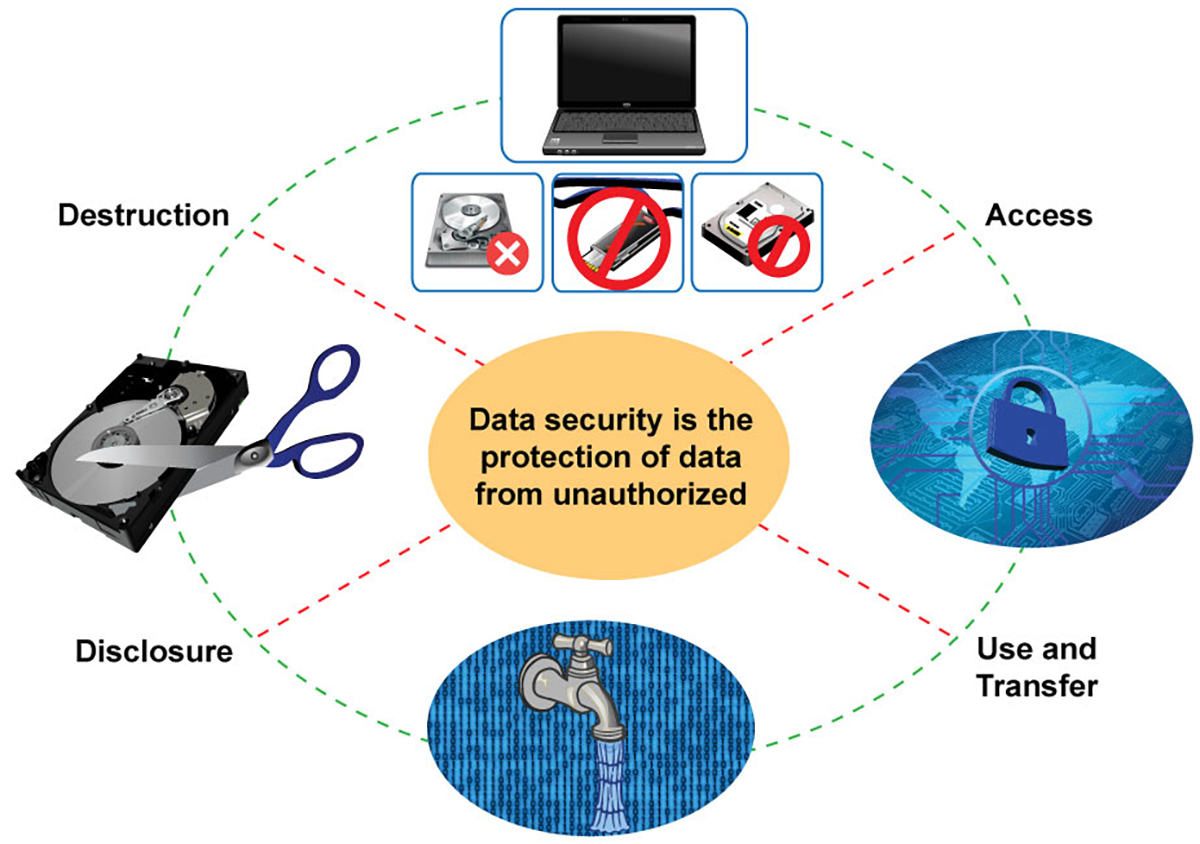Recognizing the Role of Data Destruction in Fortifying Cyber Security Defenses
Recognizing the Role of Data Destruction in Fortifying Cyber Security Defenses
Blog Article
The Necessary Nature of Data Destruction in Upholding Computer Safety Providers and Protecting Against Unauthorized Gain Access To
In an age where information violations and identity theft are increasingly prevalent, the importance of reliable information damage can not be overemphasized. Different methods, from information wiping to physical damage, offer as important safeguards against unauthorized accessibility.
Significance of Data Destruction
In a significantly digital world, the significance of information devastation can not be overstated. As organizations generate huge amounts of sensitive details, the possible consequences of failing to appropriately get rid of and take care of of that data become increasingly severe. Data violations, identification theft, and company espionage pose substantial risks, emphasizing the need of effective data devastation practices.

Additionally, as modern technology develops, so too do the approaches by which malicious actors look for to exploit sensitive information. Organizations must stay aggressive and attentive in their information devastation approaches to protect versus these developing threats. By prioritizing data devastation, firms not just secure their properties but additionally foster depend on among stakeholders and clients, showing a dedication to accountable data management and safety and security techniques.
Approaches of Effective Data Devastation
To make certain the irreversible and total destruction of delicate data, organizations can employ a range of reliable approaches tailored to their certain demands. One of the most typical approaches is information cleaning, which entails making use of specialized software to overwrite existing information numerous times, making recovery basically impossible. This is specifically beneficial for hard disks and solid-state drives, where traditional removal methods are poor.
Another efficient strategy is degaussing, which utilizes solid magnetic areas to interrupt the magnetic domain names on storage space media, rendering the information irretrievable. This approach is especially suited for magnetic storage space devices, such as disk drive and hard drives.
Physical destruction is likewise a sensible option, including the shredding, crushing, or incineration of storage gadgets. This approach guarantees that information can not be recouped, making it suitable for organizations managing extremely sensitive details.

Compliance With Data Defense Rules
Organizations should not just concentrate on reliable data devastation methods yet additionally ensure compliance with information defense policies that regulate just how sensitive info is taken care of and gotten rid of. Following these regulations is vital for keeping and guarding personal data consumer count on. Rules such as the General Data Defense Policy (GDPR) in the European Union and the Medical Insurance Portability and Accountability Act (HIPAA) in the USA enforce strict guidelines on information administration, that include demands for the safe disposal of delicate information.
To accomplish compliance, companies must implement detailed data devastation plans that straighten with these lawful structures. This includes determining information that needs devastation, establishing procedures for safe methodsâEUR" such as shredding physical media or utilizing software that satisfies market standards for information why not try here wipingâEUR" and preserving in-depth records of destruction activities. Routine audits needs to be performed to ensure adherence to these policies and to recognize any potential areas for improvement.
Failing to adhere to information security policies can lead to significant lawful implications, including substantial penalties and damage to an organization's reputation. Incorporating conformity into information devastation methods is not only a lawful responsibility however likewise an important element of a durable information protection method.
Effects of Poor Data Handling
Poor data handling can lead to severe consequences that expand past instant operational problems. Organizations may deal with substantial economic losses because of data violations, which often cause costly removal efforts, lawful costs, and governing fines. These monetary ramifications can strain resources and prevent growth, eventually affecting a company's bottom line.
Furthermore, bad data handling can severely damage an organization's online reputation. Consumers, partners, and stakeholders may lose count on an entity that stops working to secure sensitive details, causing lowered client loyalty and prospective loss of business possibilities. This erosion of trust can take years to reconstruct, if it can be restored in all.
Additionally, companies might face legal implications arising from non-compliance with information security laws. Such violations might cause charges and investigations, worsening the financial concern and further staining the company's photo.
In the world of cybersecurity, insufficient information management methods can develop susceptabilities that make systems much more susceptible to unauthorized gain access to and cyberattacks. Inevitably, these repercussions underscore the essential relevance of over at this website applying robust information taking care of procedures to protect sensitive information and keep business honesty.
Finest Practices for Secure Data Disposal


First of all, information ought to be identified according to its level of sensitivity. Sensitive info requires more strenuous disposal methods, such as shredding physical files and using innovative software application for digital information wiping. Utilizing licensed information destruction services makes sure conformity with industry policies and requirements.
Secondly, companies must implement an information disposal plan that mandates routine audits. This plan ought to lay out the procedures for information retention and damage, guaranteeing that obsolete data is disposed of quickly and firmly. Training workers on these procedures is vital to fostering a culture of security understanding.
Last but not least, preserving detailed documents of disposed data improves responsibility and offers a clear audit path. This documentation should include the kind of information damaged, the approach made use sites of, and the day of disposal.
Final Thought
To conclude, the important of efficient information devastation is evident in its duty in improving computer protection solutions and minimizing unapproved access threats. Embracing robust approaches such as data cleaning, degaussing, and physical damage, alongside compliance with regulations like GDPR and HIPAA, is necessary for safeguarding sensitive information. Ignoring appropriate data disposal practices can lead to severe repercussions, including data breaches and lawful consequences. Implementing ideal practices in secure data disposal eventually fortifies business stability and customer trust fund.
In an era where data breaches and identity burglary are increasingly common, the relevance of efficient data devastation can not be overemphasized. data destruction. Data violations, identification burglary, and company espionage position substantial dangers, emphasizing the need of reliable data devastation practices
Compliance with laws such as GDPR and HIPAA requireds that companies apply strict information defense steps, consisting of the safe devastation of data at the end of its lifecycle.
By focusing on information devastation, companies not just protect their possessions but additionally foster depend on amongst stakeholders and clients, showing a dedication to responsible data monitoring and safety and security techniques.
Organizations should not only focus on efficient information damage approaches but likewise guarantee compliance with data security guidelines that regulate how sensitive info is taken care of and disposed of.
Report this page